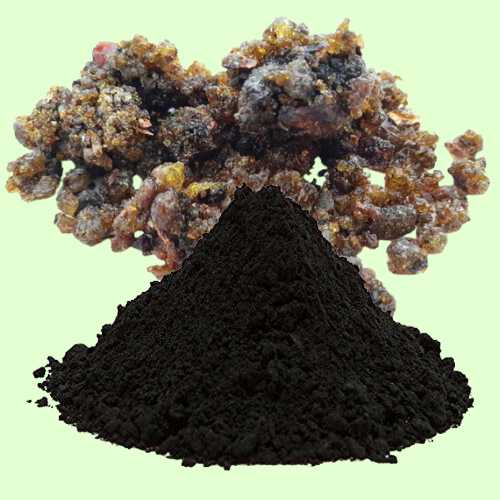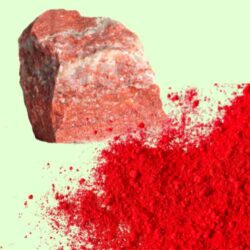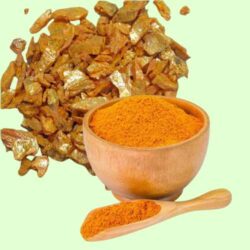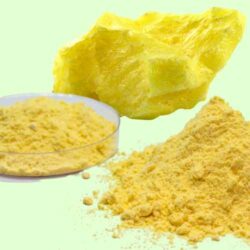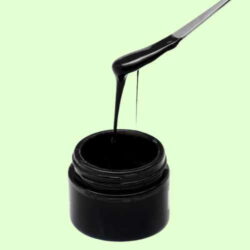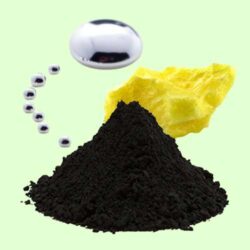Table of Contents
- Ingredients
- Method of Preparation
- Chemical Constituents of Guggulu
- Properties & Benefits of Shuddha Guggulu
- Indications of Shuddha Guggulu
- Recommended Dosage
- Contra Indications of Shuddha Guggulu
- Safety Precautions
- Frequently Asked Questions (FAQs) about Shuddha Guggulu
Ingredients
Purified Guggulu (primary active ingredient) together with supportive herbal media such as Triphala decoction, cow ghee, and other classical catalysts used during detoxification and trituration.
Method of Preparation
- Detoxification (Shodhana): Following Rasashastra protocols, Shuddha Guggulu undergoes repeated Sneha‑Swedana, sour‑gruel soaking, and cow‑milk quenching cycles to eliminate inherent toxicity.
- Mardana (Trituration): The purified substance is triturated with herbal liquids until a uniform fine powder or pellets form.
- Bhavana & Marana (Incineration, where applicable): Repeated calcination in Sharava Samputa furnaces converts it into bio‑assimilable Bhasma. Each batch passes classical quality tests such as Rekhapurnata (finger‑line fineness).
Chemical Constituents of Guggulu
Modern analytical studies reveal bio‑available guggulu complexes rich in trace elements (Zn, Cu, Fe) and therapeutic organic molecules that synergistically contribute to its efficacy.
Properties & Benefits of Shuddha Guggulu
- Rasa (Taste): Katu, Tikta
- Guna (Qualities): Laghu, Tikshna
- Veerya (Potency): Ushna
- Vipaka (Post‑digestive Effect): Katu
- Helps pacify aggravated Kapha and Vata, breaks metabolic blockages (Avarana), and supports healthy skin, joints, digestion, and immunity.
Indications of Shuddha Guggulu
Indicated in joint pain, obesity, dyslipidemia, thyroid imbalance, acne, and enhancement of metabolism.
Recommended Dosage
125–250 mg of fine bhasma or 1 capsule, once or twice daily after meals with honey or ghee, or as directed by a qualified Ayurvedic physician.
Contra Indications of Shuddha Guggulu
Pregnancy, lactation, children below 12 years, active Pitta disorders, peptic ulcers, and concurrent use with anticoagulants or immunosuppressants unless medically advised.
Safety Precautions
Use only pharmaceutically purified (Shodhit) grade verified by classical bhasma tests and modern heavy‑metal assays. Follow prescribed diet (Pathya‑Apathya) and duration strictly.
Frequently Asked Questions (FAQs) about Shuddha Guggulu
Q1. Is Shuddha Guggulu safe for daily consumption?
Yes, provided it is properly purified and taken in the recommended dose under expert guidance.
Q2. What is the typical shelf life of Shuddha Guggulu?
Shuddha Guggulu generally remains stable for 3 years in airtight, moisture‑free containers.
Q3. Is Shuddha Guggulu suitable for vegetarians?
Yes. All ingredients and processing media are plant‑based or mineral‑based; no animal tissue is used.
Q4. Can I take Shuddha Guggulu along with allopathic medicines?
Maintain a 1‑hour gap and inform both practitioners to avoid possible interactions.
Q5. How long does it take to notice results?
Symptomatic relief may appear within 2–4 weeks, but chronic conditions often require 3 months of supervised use.
